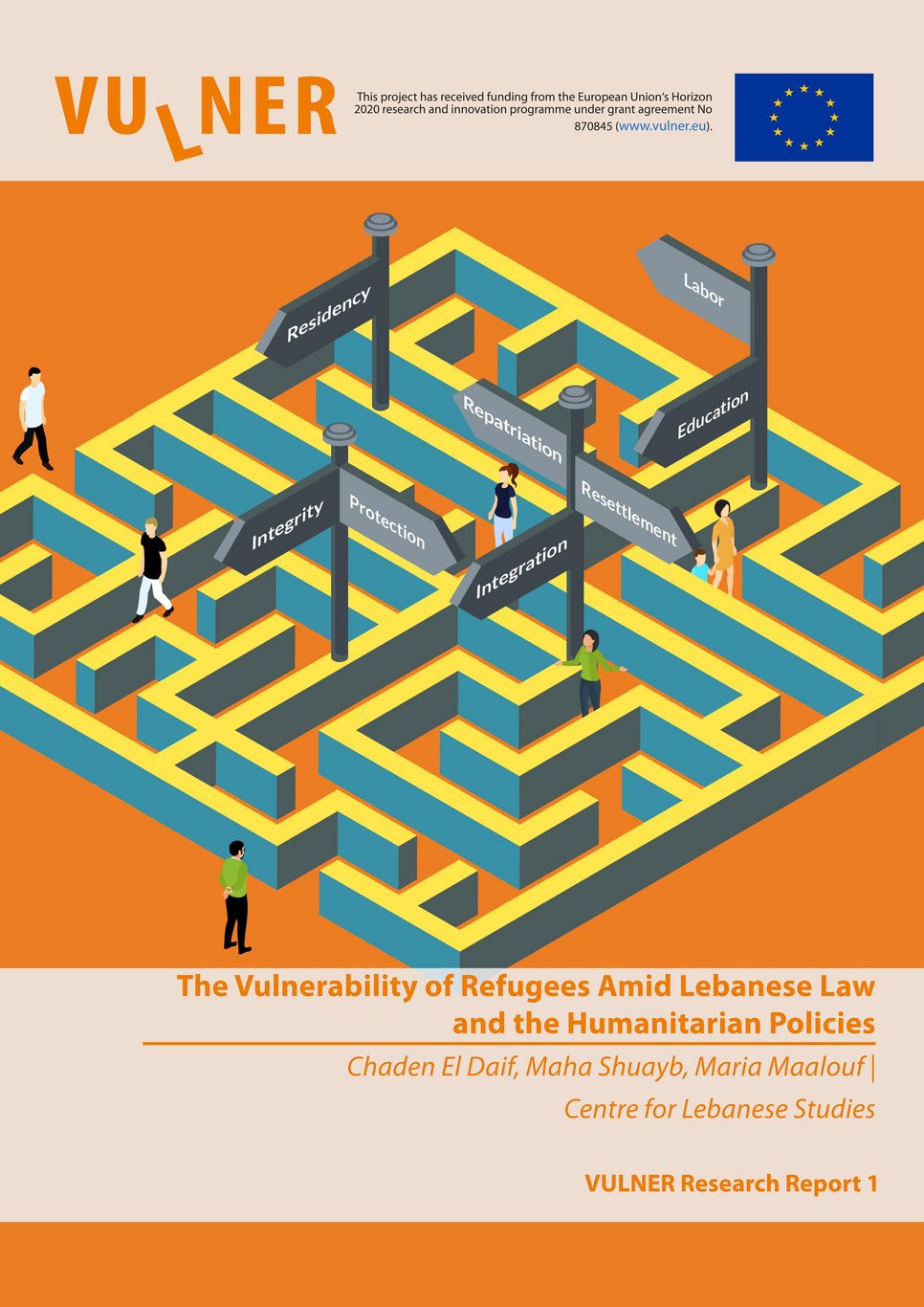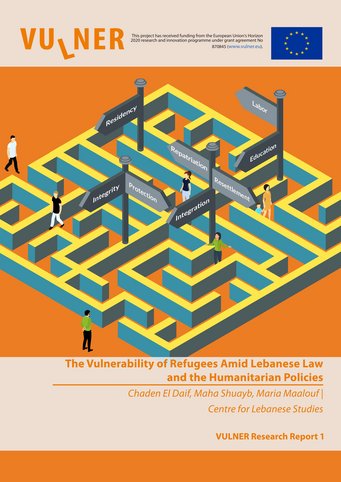The Vulnerability of Refugees Amid Lebanese Law and the Humanitarian Policies
by Chaden El Daif, Maha Shuayb, Maria Maalouf

This research report presents some of the intermediate research results of the VULNER project, based on the first phase of the project, which consisted of mapping out the vulnerability assessment mechanisms developed by state authorities in Lebanon, including how they are implemented on the ground through the practices of the public servants in charge. In addition, the report examined the vulnerability assessment mechanism employed by international organizations in Lebanon, whether the United Nations agencies or other international and national non-governmental organizations.
The following research questions are addressed: What do the relevant domestic legislation, case-law, policy documents, and administrative guidelines reveal about how “vulnerabilities” are being assessed and addressed in the countries under study? Do the relevant state and/or aid agencies have a legal duty to assess migrants’ vulnerabilities, and if yes, using which procedures, when and how? Following which legal and bureaucratic criteria? How do decision-makers (street-level bureaucrats) understand and perceive the ‘vulnerabilities’ of the migrants they meet on a daily basis? How do they address these ‘vulnerabilities’ through their everyday practices? What is their stance on existing legal requirements towards ‘vulnerable’ migrants? Which loopholes do they identify?
To that end, the Lebanese report seeks to understand how the concept of vulnerability of a refugee is conceived and implemented in the legal system and policies in Lebanon. The interest in the potentials of the notion of vulnerability in humanitarian contexts comes at a time when international aid is shrinking while the Syrian conflict became protracted.
The approach followed for this report was a qualitative one comprising of a desk review of laws and legislations and 42 semi-structured interviews with key stakeholders such as with judges, officials working with the Ministry of Social Affairs, and the General Security and Internal Security Forces’ Directorate-General. On the other hand, interviews were conducted with key staff of UN agencies, international and national NGOs in addition to legal practitioners Lebanon is the country hosting the most refugees per capita and has thus received considerable attention from the international community including EU funding to help curb the influx of refugees attempting to reach to Europe in search for a better future. Lebanon’s legal and policy frameworks deny refugees access to asylum on its territory making it a transit country for refugees where integration and resettlement are not allowed.
The main findings of the report show that the notion of vulnerability as practiced and approached in the humanitarian response is quite different to the definition adopted by other the countries that are part of the VULNER consortium. Vulnerability in the humanitarian context of Lebanon is defined primarily by ability of access economic resources as well as protection. Vulnerable categories are not a primary concern for the refugees’ vulnerability assessments since the prime concern of humanitarian actors is to ensure the socio-economic needs of the refugee population. As for Lebanese legislations, vulnerability is used to refer to certain groups such as women and minors without restricting legal protection to nationality or legal status.
Finally, the growing emphasis on vulnerability was criticized since it renders refugees passive and it is defined abroad by the international community mainly humanitarian organizations and imposed on Lebanon. Practitioners called to adopt a discovery approach to define refugees’ vulnerability and to unpack its root causes, rather than being focused only on dealing with the consequences.
The next phase of the study will be focused on understanding vulnerability from the perspectives of refugees in Lebanon in order to unpack their perception of vulnerability.
Download the full report here.
